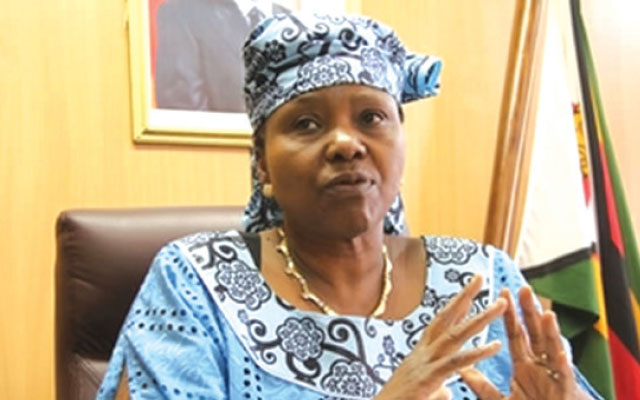Innocent Ruwende Senior Reporter
Government requires more than $80 million to repair breached dams and weirs and to maintain 266 dams, which are threatening to breach this rainy season, Water and Climate Minister Oppah Muchinguri-Kashiri has said. Officially opening the National Pre-Conference of Parties workshop in Harare yesterday, Minister Muchinguri-Kashiri said Cyclone Dineo caused unimaginable suffering to Zimbabweans early this year, with droughts and floods interchanging in occurrence from year to year, causing extensive damage to infrastructure.
“The past three years have made us aware of just how vulnerable we are as a country to extreme weather events,” she said. “The 2015/2016 rainy season witnessed rains that were far from adequate for dry land crop agriculture, and the country had to use more than $200 million to import maize. “With threats of climate change, many villagers now need urgent assistance, including relocation to higher ground for those in flood-prone areas, enhanced irrigation systems and other preparedness interventions.”
Minister Muchinguri-Kashiri said Government was in the process of procuring six expensive borehole drilling rigs, which could drill more than 100 metres, so as to enhance the resilience of communities. She said the country was, therefore, investing in costly mitigatory measures to ensure that it combated and minimised the effects with minimum assistance from developed countries, who were the major contributors to pollution-induced climate change.
Turning to COP23, Minister Muchinguri-Kashiri said stakeholders in developing countries needed to engage and form a united front, starting from their respective countries. “The Government of Zimbabwe believes that climate action in developing countries should be backed by strong financial support from the developed world, which is responsible for the bulk of historical greenhouse emissions,” she said.
“We should call upon developed countries to explore opportunities to close the gap and address the associated impacts, including through a facility to finance emission reductions in developing countries in the run up and beyond 2020.” Permanent Secretary in the Office of the President and Cabinet Ambassador Boniface Chidyausiku said Government recognised the far-reaching consequences of the Paris Agreement on the global economy and climate finance for adaptation and mitigation, especially for developing countries.
“As Zimbabwe, this year’s edition of COP negotiations is very important for us as it will allow the country’s negotiators to follow up on the development and, perhaps, the conclusion of rule book for implementation of the Paris Agreement,” he said.
The country, he said, needed to safeguard its development by ensuring that the rule book did not contain unachievable targets, which may curtail economic development.

